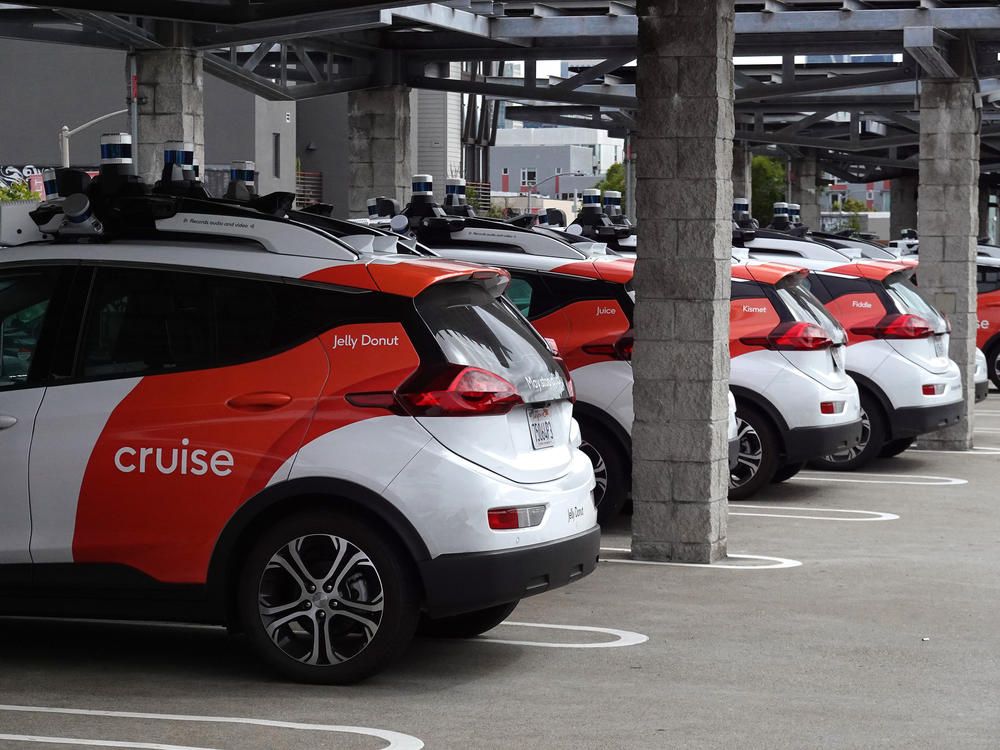Section Branding
Header Content
GM's driverless car company Cruise is under investigation by several agencies
Primary Content
The GM-owned driverless car company Cruise is under investigation by several federal agencies for an October crash that seriously injured a pedestrian.
The company on Thursday said it is being investigated by the National Highway Traffic Safety Administration, the U.S. Department of Justice, and the U.S. Securities and Exchange Commission, in addition to California agencies. Cruise said it is "fully cooperating" with the regulatory and enforcement agencies that have opened the investigations.
In the Oct. 2 crash, a vehicle struck a pedestrian and sent her flying into the path of the self-driving Cruise car. The Cruise vehicle then dragged the pedestrian for another 20 feet, causing serious injuries.
Cruise, which owns a fleet of robotaxis in San Francisco, then failed to adequately inform regulators of the self-driving vehicle's full role in the incident. Since then, Cruise's driverless ride-hailing services have been paused in all markets. The CEO resigned, along with other senior executives.
Cruise also hired outside law firm Quinn Emanuel Urquhart & Sullivan to investigate the incident.
In a scathing report, released Thursday, the law firm said Cruise's interactions with regulators revealed "a fundamental misapprehension" of the company's obligations to the public.
The company says it accepts the law firm's conclusions and is focused on "earning back public trust."
"Poor leadership" cited as one reason for the Cruise's failing
In its initial explanations of the crash to the public and to regulators, Cruise did not acknowledge that the robotaxi dragged the pedestrian. Instead, it focused on the fact that the collision was originally caused by another vehicle.
The law firm did not conclude that Cruise intentionally misled regulators. The report states that Cruise did attempt to play a full video for regulators that showed the pedestrian being dragged, but "internet connectivity issues" repeatedly caused the video to freeze. And instead of pointing out the video's significance, "Cruise employees remained silent, failing to ensure that the regulators understood what they likely could not see."
Letting a video "speak for itself" when the video couldn't even play didn't quite rise to the level of concealing the truth, the law firm concluded. But the report said it revealed a lot about Cruise's corporate culture.
"The reasons for Cruise's failings in this instance are numerous: poor leadership, mistakes in judgment, lack of coordination, an 'us versus them' mentality with regulators, and a fundamental misapprehension of Cruise's obligations of accountability and transparency to the government and the public," the law firm wrote.
Copyright 2024 NPR. To see more, visit https://www.npr.org.

